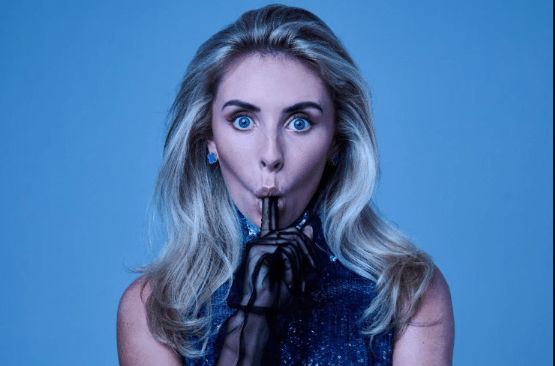A government task force is preparing to introduce legislation aimed at banning so-called ‘barely legal’ pornography, a genre brought into sharp focus by a recent Channel 4 documentary featuring adult performer Bonnie Blue.
The move follows a wave of public and political backlash sparked by “1000 Men and Me: The Bonnie Blue Story”, which tracked the adult star’s career over six months.
The programme, which aired on Channel 4, has faced sharp criticism from campaigners and advertisers alike for what many argue was a troubling portrayal of extreme pornographic content.
Fresh Push for Legal Reform
Baroness Bertin confirmed plans to bring forward amendments to the Crime and Policing Bill when Parliament reconvenes after summer recess. The proposed changes will target online platforms that host content involving adults acting as children, an area not currently outlawed.
“This content is pushing at the boundaries. We will be trying to address the ‘barely legal’ aspect legislatively,” Baroness Bertin told The Guardian.
The Channel 4 documentary included scenes of Bonnie Blue, real name Tia Billinger, preparing to shoot with models dressed in school uniforms, specifically chosen for their youthful appearance. The footage, although heavily pixelated, ignited fierce concern.
Criticism from Child Protection Advocates
Dame Rachel de Souza, the Children’s Commissioner for England, was among the most vocal critics. She accused the programme of “glamorising and normalising” extreme pornography and said it could further blur boundaries for young viewers already inundated with harmful online material.
“For years we have been fighting to protect our children from the kind of degrading, violent sex that exists freely on their social media feeds.
This documentary risks taking us a step back by glamorising, even normalising, the things young people tell me are frightening, confusing and damaging to their relationships,” said Dame Rachel.
As Britain tightens online safety rules, lawmakers are turning their attention to grey areas in pornography, especially content that mimics underage scenarios but skirts legality. With cultural debate swirling around freedom of expression and child protection, the government is preparing to act decisively.
Advertising Backlash and Public Outcry
Several brands swiftly pulled their adverts after learning they had been shown during the documentary. Among them were Visa, Smirnoff, and Cawston Press all of whom said the programme clashed with their brand values and advertising standards.
Critics also took aim at Channel 4, accusing the broadcaster of poor editorial judgment for airing explicit sexual content involving Bonnie Blue, who previously gained notoriety for participating in a stunt where she had sex with over 1,000 men in a single day.
“Channel 4 showed a surprising lack of judgment in showing such explicit sex scenes. More widely, the glamorisation and normalisation of content creators like Bonnie Blue does undoubtedly have an effect.
In my opinion, this is a direction of travel that is not particularly helpful for society, nor is it prudish to call it out as such,” added Baroness Bertin.
A Complex Legal Landscape
Although the Online Safety Act, which came into effect on 25 July, requires online platforms to prevent children from accessing harmful content, including pornography, it does not yet prohibit adults from role-playing as minors in sexual content.
The act has also tasked Ofcom with policing illegal online material, ranging from child abuse imagery to depictions of rape, necrophilia, and bestiality.
But there’s a growing consensus among lawmakers and campaigners that gaps remain, particularly around content that, while legal, veers dangerously close to the line.
Channel 4 Responds
In defence of the documentary, a spokesperson for Channel 4 said: “The film looks at how Bonnie Blue has gained worldwide attention and earned millions of pounds in the last year, exploring changing attitudes to sex, success, porn and feminism in an ever-evolving online world.
Director Victoria Silver puts a number of challenges to Bonnie throughout the documentary on the example she sets and how she is perceived, and the film clearly lays bare the tactics and strategies she uses, with the audience purposefully left to form their own opinions.”
As calls grow for a crackdown on exploitative content that skirts legal boundaries, the government’s incoming legislation could mark a significant shift in the UK’s approach to online adult entertainment.






